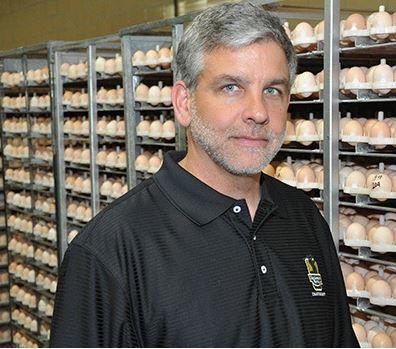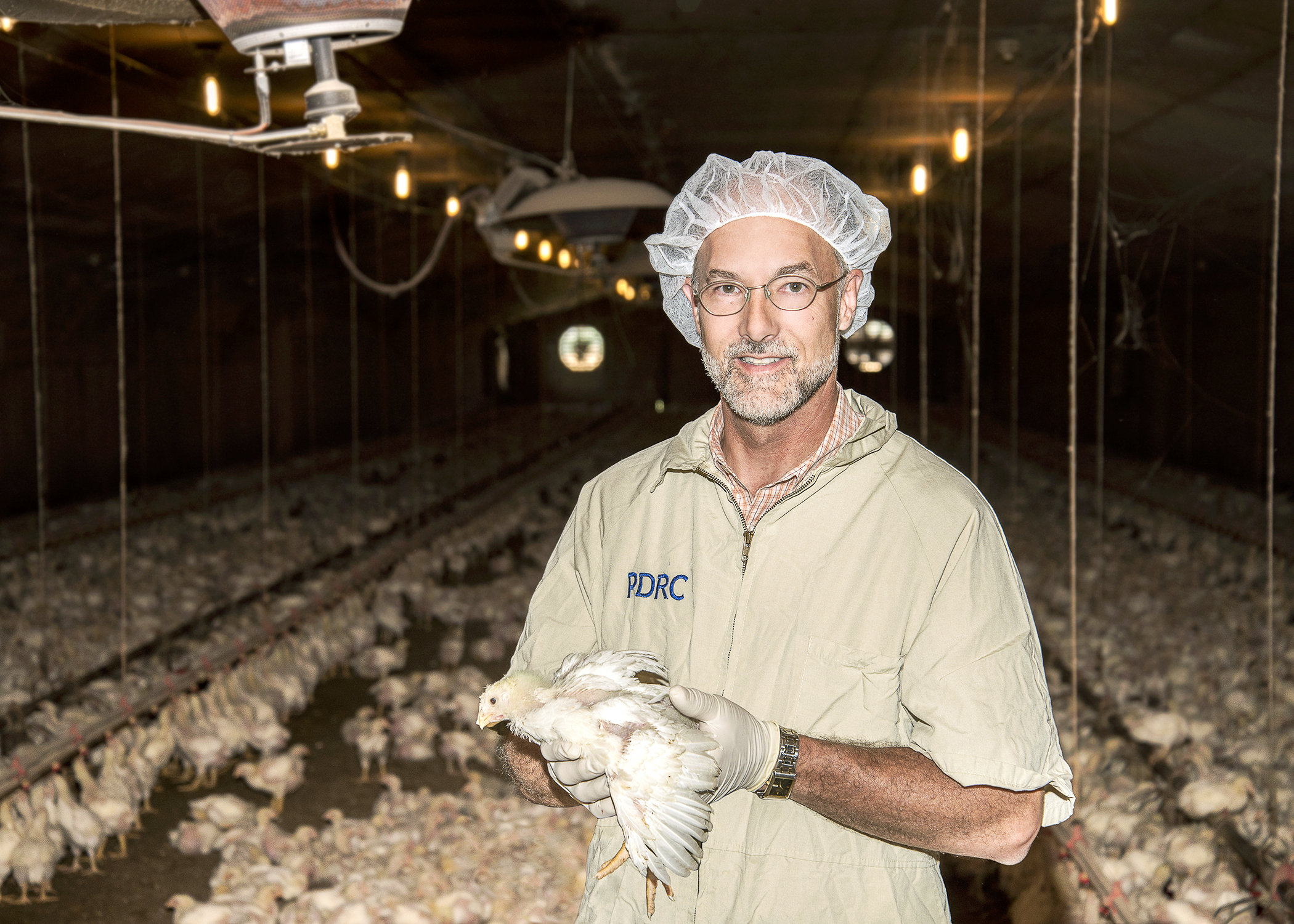



Sizing Up McDonald’s Order: Poultry Health Specialists React to Fast-Food Giant’s Antibiotic Policy
US - McDonald’s USA recently announced that within 2 years it would only buy chicken raised without antibiotics that are “important to human medicine.”Because McDonald’s follows antibiotic guidelines established by the World Health Organization instead of the US' Food and Drug Administration (FDA), that pretty much rules out using all medicinal feed additives except ionophores — a type of antibiotic used to manage coccidiosis — and synthetic antimicrobials, which are not antibiotics.
Even broilers treated with bacitracin — an antibiotic that’s widely used in the US poultry industry to prevent and control necrotic enteritis — won’t pass muster under McDonald’s new policy. (FDA does not deem bacitracin medically important to humans, but it is on the WHO list.) Costco and some other retailers have indicated they might do the same.
Zoetis' Poultry Health Today asked US poultry health specialists, “How do you think McDonald’s new antibiotic policy will affect disease pressure and the poultry industry’s approach to managing gut health?”
Here are their responses:
Philip A. Stayer, DVM, MS, ACPV - Corporate Veterinarian - Sanderson Farms, Inc. Stayer
McDonald’s reduced antibiotic policy towards poultry seems duplicitous coming from a hamburger chain not using the same standards with their primary meat species. Much like Chik-Fil-A using dairy cows to market chicken sandwiches, McDonald’s appears to be diverting the bull in the room by picking on a smaller species.

The unintended consequences of such a marketing ploy will undoubtedly include animal suffering (higher morbidity), more animals needed to produce the same amount of meat (higher mortality), a significantly larger carbon footprint as more grain and other resources will be required to bring sick, less efficient animals to market and more bacteria carried into the human food chain if weakened animals are harvested without the benefit of healing interventions.
Those producers who sell to McDonald’s will need to count the costs of animal welfare, environmental impact and customer food safety compared to the extra income McDonald’s sales will provide.
Veterinary medicine, especially farm-animal production medicine, of which poultry is a part, already has few FDA approved antibiotics available. Removing any antibiotics from the limited arsenal of therapeutics will obviously further restrict treatment options.
In short, more animals will suffer and/or die for no one’s benefit as there will be fewer proven medical interventions. Producers abiding by McDonald’s standards will be looking for non-FDA approved compounds to help replace the tested and true products voluntarily laid aside. Managing poultry intestinal health will be trial and error with pre-modern anecdotal treatments, with hopes of regaining much what was lost after choosing an anti-technology market segment.
McDonald’s antibiotic policy for poultry appears to be a lose-lose-lose policy with no apparent winners.
Charles Hofacre, DVM, PhD - Professor and Director, clinical services - Poultry Diagnostic and Research Center, University of Georgia
Under the new FDA guidelines that will begin December 2016, we will be allowed to prevent and treat animals that are at risk or become ill under a veterinarian’s guidance. We won’t have any growth promoters to use.

Policies like McDonald’s means we cannot treat chickens to stop disease or prevent suffering. If you do treat or prevent a disease, then that chicken is not good enough for a McDonald’s customer. Research by Dr. Scott Russell at the University of Georgia actually demonstrated that sick birds had higher levels of salmonella.
This McDonald’s program has no basis in science for reducing risk to consumers and, in my opinion, is only created to give McDonald’s a marketing advantage.
Suzanne Dougherty DVM, MAM, MS, DACPV - Pecking Around Consulting - Madison, Alabama
The 2015 McDonald’s US antibiotic policy was a huge win for poultry health on one hand and on the other hand, it’s a terrible loss.

Allowing its chicken suppliers to use ionophores represents acknowledgement by the restaurant industry and consumers that not all antibiotics used in food animal production could potentially influence antibiotic resistance in humans.
However, McDonald’s policy also takes away the ability of licensed veterinarians to use FDA-approved antibiotics to treat sick and suffering poultry flocks. Not only is this a critical animal welfare issue, it ties the hands of licensed and trained veterinarians who have vowed to protect animal health and welfare and promote public health.
One example is bacitracin, which is an excellent drug for treating flocks afflicted with bacterial intestinal disease and bears very little risk to consumers. Yet, it will be prohibited by McDonald’s policy.
Research has shown that broilers with intestinal health issues such as necrotic enteritis have a higher likelihood of being positive for Salmonella. The broiler industry has worked diligently to significantly reduce Salmonella in meat over the past 5 years, and the removal of therapeutic drugs to treat for the disease could be a detriment to these efforts.
In summary, McDonald’s decision to restrict the use of several antibiotics will be a detriment to animal welfare and will likely result in higher incidence of sick flocks entering the food system.
Greg Mathis, PhD - Southern Poultry Research - Athens, Georgia
This policy is like a double-edged sword. On the negative side: McDonald’s policy cuts bacitracin from the list. Since in 1955, bacitracin has been used to aid in the reduction of poultry enteric disease. Its removal will be a major restriction to the already limited number of successful necrotic enteritis control programs.

On the positive side, McDonald’s will permit ionophores, a very useful class of anticoccidial drugs. Ionophores were approved for use in poultry starting in the 1970s. They are not used in human medicine. Their unique mode of action has provided good coccidial control and they are credited for much of the poultry industry’s success.
Without the ionophorous anticoccidials, the US poultry industry would be limited to approximately seven synthetic anticoccidials, which have been FDA-approved for on average of 50 years. The poultry industry cannot afford to lose any coccidiosis-control tools, especially since we will have restrictions to our enteric bacterial disease control programs.
Yvonne Vizzier Thaxton, PhD - Professor and Director, Center for Food Animal Wellbeing, University of Arkansas
The fact that McDonald’s stressed the need to treat sick animals is significant and the right thing to do.

While pressure from retail groups such as McDonald’s to remove medically important antibiotics from broiler chicken operations will certainly have an effect on management of gut health, the fact that several broiler companies have already announced programs that would meet McDonald’s requirements is a clear indicator that management practices can be changed to compensate for the loss of preventative medicines.
Doing all that is possible to maintain the effectiveness of antibiotics for humans is also the right thing to do.
Production veterinarian for a major US producer - (name and affiliation withheld upon request)
While I am happy that ionophores were salvaged, there is little doubt that this policy will make disease control and prevention much tougher for poultry veterinarians. Necrotic enteritis will be harder to control without the use of bacitracin and virginiamycin.
The McDonald’s policy will also put a tremendous amount of pressure on poultry veterinarians to control coccidiosis. I think you will see the use of coccidiosis vaccine increase in the next few years, and with that will come improvements on application, [which in turn could] decrease the incidence of necrotic enteritis [in vaccinated birds].
You will also see people pushing the envelope on how long synthetic antimicrobials can be used before resistance becomes problematic.
More importantly, this policy is also an ethical dilemma for poultry veterinarians who are faced with the decision of whether or not to treat sick birds. If there is no outlet for the “treated” product to go to, the birds can’t be treated.
Production veterinarian for a major US producer - (name and affiliation withheld upon request)
This policy creates a new category of poultry — “ionophores only” — and does not allow for antibiotic treatment of sick flocks. Non-FDA approved gut health products will be tried to maintain poultry health and welfare but, unfortunately, they have been largely ineffective when used in commercial poultry production settings.
Thus, chickens produced in this category will suffer increased mortality and condemnation rates to meet this marketing specification. The chickens are the losers in this case.









